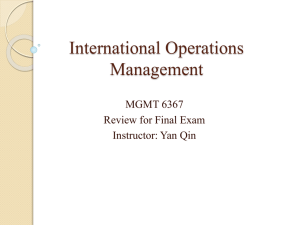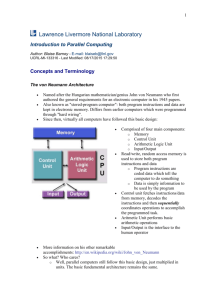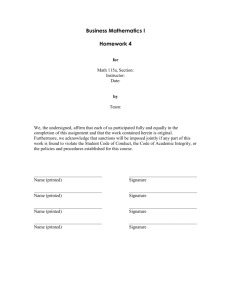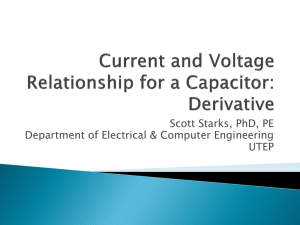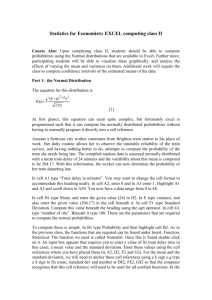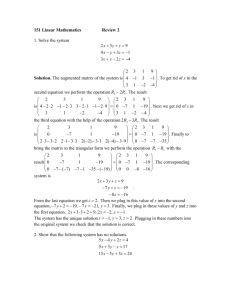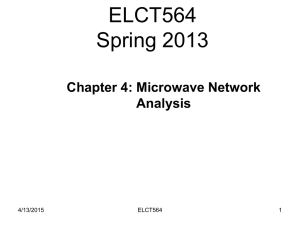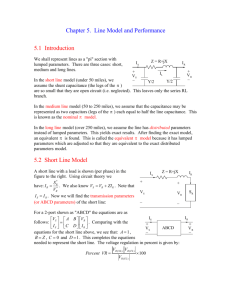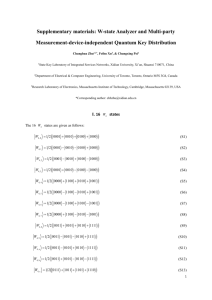HW10, Click here
advertisement
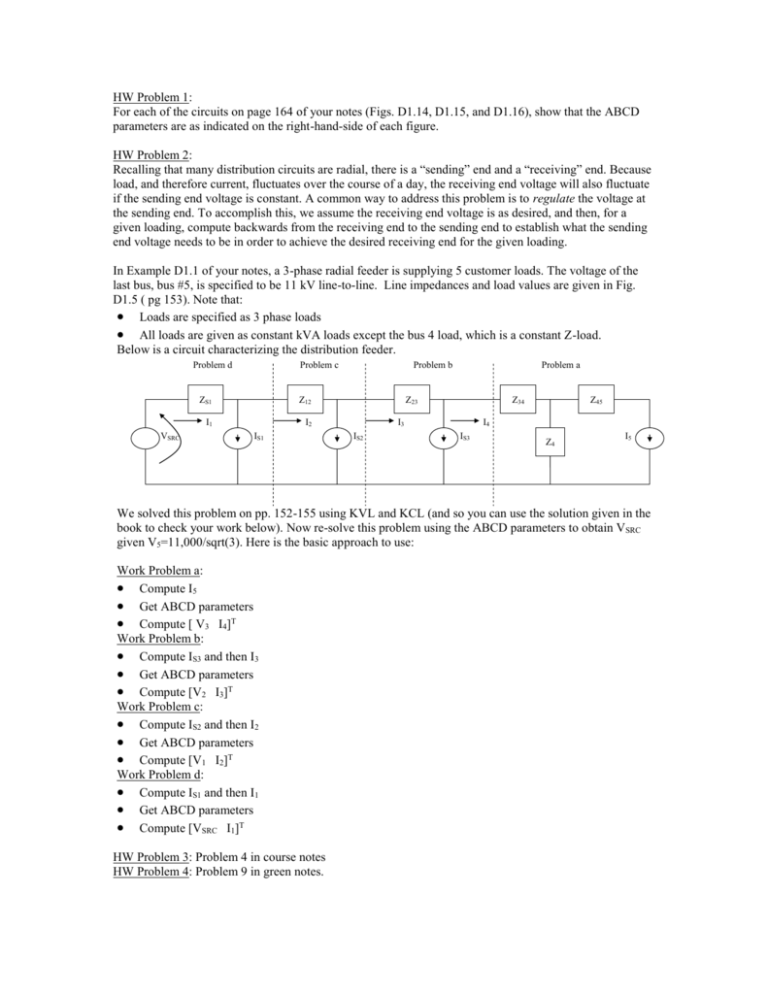
HW Problem 1: For each of the circuits on page 164 of your notes (Figs. D1.14, D1.15, and D1.16), show that the ABCD parameters are as indicated on the right-hand-side of each figure. HW Problem 2: Recalling that many distribution circuits are radial, there is a “sending” end and a “receiving” end. Because load, and therefore current, fluctuates over the course of a day, the receiving end voltage will also fluctuate if the sending end voltage is constant. A common way to address this problem is to regulate the voltage at the sending end. To accomplish this, we assume the receiving end voltage is as desired, and then, for a given loading, compute backwards from the receiving end to the sending end to establish what the sending end voltage needs to be in order to achieve the desired receiving end for the given loading. In Example D1.1 of your notes, a 3-phase radial feeder is supplying 5 customer loads. The voltage of the last bus, bus #5, is specified to be 11 kV line-to-line. Line impedances and load values are given in Fig. D1.5 ( pg 153). Note that: Loads are specified as 3 phase loads All loads are given as constant kVA loads except the bus 4 load, which is a constant Z-load. Below is a circuit characterizing the distribution feeder. Problem d Problem c ZS1 Z12 I1 VSRC Problem b Z23 I2 IS1 Problem a Z34 I3 IS2 Z45 I4 IS3 Z4 I5 We solved this problem on pp. 152-155 using KVL and KCL (and so you can use the solution given in the book to check your work below). Now re-solve this problem using the ABCD parameters to obtain V SRC given V5=11,000/sqrt(3). Here is the basic approach to use: Work Problem a: Compute I5 Get ABCD parameters Compute [ V3 I4]T Work Problem b: Compute IS3 and then I3 Get ABCD parameters Compute [V2 I3]T Work Problem c: Compute IS2 and then I2 Get ABCD parameters Compute [V1 I2]T Work Problem d: Compute IS1 and then I1 Get ABCD parameters Compute [VSRC I1]T HW Problem 3: Problem 4 in course notes HW Problem 4: Problem 9 in green notes.

